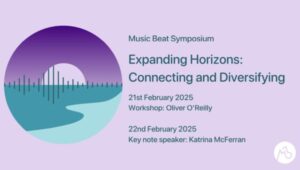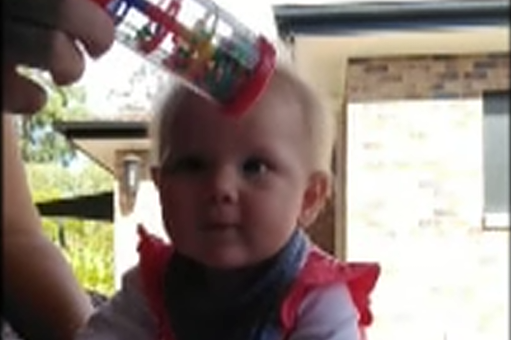
Music Beat Workshop + Symposium 2025
Expanding Horizons: Connecting & Diversifying The Music Beat Australia Workshop and Symposium is an opportunity for Registered Music Therapists (RMTs) to gather, share, collaborate, and

Research shows us that bubs love it when you sing to them the most.
And you are biologically hard wired to sing to your babies. I love this!
Even though we don’t always think we are musically talented, we can tap into this little evolutionary gem and use music to connect with our bubbas and to stimulate and support their learning and growth.
At Boppin’ Babies we design our programs so that you feel empowered to make music in your home.
We present live music that is easy to copy, through a repetitious structure that is easy to learn and doesn’t overstimulate your baby.
The singing is purposeful and gentle, presented in ways that encourage you to join in.
We don’t ‘perform’ our classes to you, we engage in them with you.
We provide songs and activities for you to take and use at home, and expose you and your families to a range of age and developmentally appropriate instruments.
Recently a Boppin’ Mumma sent me this delightful video.
I just love how this mummy interacts and shares music in loving and supportive ways with her little one.
I love how she sings confidently and gently, and I love that she uses our original songs!
During the song the baby can be seen to actively engage with mum, and respond to her cues.
She visually and aurally tracks the sounds as they move up and down and side to side.
The mother actively encourages her to shake along too through gentle facilitation and playing, and she repeats the song.
There doesn’t seem to be any urgency to overload the bub with more songs, more information, more instruments, more sensory experiences, just a simple, beautiful multi-modal approach (mum singing, eye contact and touch) that we model in our groups over and over again.
The other reason I love this so much is because research shows that shared music in the home can lead to long term developmental benefits for children.
When I am not Boppin’ I am researching, and one study we reported on showed improved social, emotional and cognitive outcomes for children who shared music more frequently in the home. You can read more here.
Dr Kate Williams, the lead author wrote an excellent blog on this article explaining why she thinks music supports child development, and what parents can take from the research.
I encourage you all to have a read.

Expanding Horizons: Connecting & Diversifying The Music Beat Australia Workshop and Symposium is an opportunity for Registered Music Therapists (RMTs) to gather, share, collaborate, and

MELP Holiday Programs just for you! BACK BY POPULAR DEMAND – we are so excited to announce that Miss Anna will host “Special Edition Summer